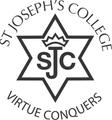DEPUTY PRINCIPAL LEARNING AND TEACHING

VO EXAMS (YEARS 9 AND 10)
Year 10 Exams will commence on Monday 21 November, and conclude on Friday 25 November.
Year 9 Exams will commence on Monday 21 November, and conclude on Tuesday 29 November.
The final day for Year 9 students will be Tuesday 29 November.
VCAL
Normal classes for current Year 11 Intermediate VCAL students will conclude on 8 November.
Intermediate VCAL teachers will be available on the 10, 14 and 15 November for students who are still completing required work. These students will begin their VM Headstart Program on 16 November.
YEAR 11 EXAMS
Year 11 Exams will commence on Wednesday 9 November, and conclude on Tuesday 15 November.
All families of Year 11 students will receive a letter regarding exams this week. If students wish to leave the college grounds after completing their exams, it is essential they return the signed permission slip. Once this has been received, students will be issued with a QR code that will enable them to scan out of the college after each exam. Further information will be provided in the letter being sent home.
EXAM TIPS
Exam week can be a stressful time for all students. Knowing how to properly prepare for exams is the key to avoiding stress and acing every single one of your exams. Here are some proven methods that will have you focused and better prepared for final exams.
Say NO to cramming: Study in intervals! Studying in 20 to 50 minute increments and giving yourself 5 to 10 minutes in between is more beneficial than cramming. Distributing learning over time typically benefits long-term retention more than a short period.
Say YES to cardio: Science says that just 20 minutes of cardio can improve your memory. Whether you are dancing, jogging or walking, exercise will increase your energy level and reduce the effects of stress.
Eat superfoods/antioxidants: Everybody knows you should eat breakfast on the day of an exam. Research suggests that high-carb, high-fibre, slow-digesting foods like oatmeal are best. (Oatmeal is more filling than cereal.) However, what you eat a week in advance matters, too. When 16 college students were tested on attention and thinking speed, then fed a five-day high-fat, low-carb diet heavy on meat, eggs, cheese and cream and tested again, their performance declined. However, the students who ate a balanced diet that included fruit and vegetables held steady (says Cameron Holloway, a senior clinical researcher at the University of Oxford). When you study, your brain consumes glucose, so take a five-minute break every hour to let your body produce more fuel for your studying. Eating a healthy snack is very beneficial and can make a significant difference. Almonds, fruit, and yoghurt are good choices.
Alternate study spots: Shake up your exam routine! Spending all night in the library can be draining. According to the New York Times, simply alternating the room where a person studies improves retention. In an experiment, psychologists found that college students who studied a list of 40 vocabulary words in two different rooms – one windowless and cluttered, the other modern, with a view on a courtyard – did far better on a test than students who studied the words twice, in the same room. Why? Supposedly, the brain makes subtle associations between what it is studying and its background sensations at the time. Try alternating your study spots between the library, a study room and outside.
Time management: Cramming causes anxiety, which lowers your ability to retain information. By creating a balanced study plan and schedule, you can study each subject in its entirety and ultimately boost your exam performance.
Avoid the all-nighter: Based on a 2008 study by Pamela Thacher, Associate Professor of Psychology at St Lawrence University, all-nighters impair reasoning and memory for as long as four days. As a result, you will receive lower grades. However, that is not all; you would then be forced to wake up earlier than expected, which is bad, too. According to Dan Taylor, director of a sleep-and-health-research lab at the University of North Texas, this will interfere with rapid-eye movement (REM), which aids memory. So, get a good night’s sleep and expect to perform better on tests. (Quick tip: Review the toughest material before bed the night before the exam. It makes it easier to recall the material later.)
MINIMISE distractions: Research shows that while many teens prefer to study while listening to music, texting friends, or watching television, they are less likely to retain information. If you must listen to music, stick to instrumental music and consider downloading study tools to keep you focused!
MAXIMISE practice testing: You may have thought highlighting, re-reading, and summation would be effective ways to study. Think again! A 2013 study, 'Improving Students’ Learning with Effective Learning Techniques', found that these techniques do not consistently boost students’ performance. Practice testing using flashcards or taking practice exams was observed to be a highly effective studying technique.
2023 YEAR 12 HEADSTART PROGRAM
The 2023 Year 12 Headstart Program will commence on Wednesday 16 November, and conclude on Friday 25 November. Students will receive timetables for this program in the coming weeks.
The 2023 Year 12 VM Headstart Program will run concurrently with the VCE Headstart Program.
2023 YEAR 11 HEADSTART PROGRAM
The 2023 Year 11 Headstart Program (NOVUS) will commence on Monday 28 November, and conclude on Friday 2 December. Mr Ficarra will distribute details of the program in the coming weeks.
SCHOLARSHIPS
Continuing from previous traditions, the Achievement ‘Postgraduate Year 12 Award Scholarships’ will be awarded to successful graduating students of 2022.
Year 12 students who achieve an ATAR ranking of 90 or above will receive a $2,000 cash scholarship each year.
The student who is Dux of the College will also receive an additional $1,000 cash scholarship on top of the $2,000 received for achieving an ATAR ranking of 90 or above.
The Proxime Accessit will receive an additional $500 cash scholarship on top of the $2,000 received for achieving an ATAR ranking of 90 or above.
The scholarships are dependent on the achievement of an ATAR of 90 or above.
ACADEMIC AWARD WINNERS
I want to acknowledge the 2022 Term 3 Academic Award winners for Growth. Term 3 winners are in the top tenth percentile of their year level based on scores averaged across all assessment tasks for subjects in Years 7 to 11. Congratulations to the following students:
YEAR 7
Eren Alcicek, Toby Crane, Keeble Devereux, Bonnie Englefield, Noah James, Samuel Mills, Mariska Dini, Hirun Herath Mudiyanselage, Jacob Bosch, Addyson Cirigliano, Jett Alderton, Matilda Palazzo, Ajaye Andriske, Addison Hobbs, Nate Nelson, Gideon Burton.
YEAR 8
Tobias Wyatt, Lara Natale, Chase Gibson, Emmersen Lihou, Aidan Nulty, Lily Stewart, Thomas Dang, Madison Garreffa, Will Heuzenroeder, Charlie Puleio, Luis Thornton, Aphisit Morris, Joe Buchanan, Mary Kelly, Molly Pavilach.
YEAR 9
Nicholas McWilliams, Layla Stavroudakis, Ali Arslan, Sumah Foster, Coco Burgess, Crizelen Cruz, Nate Pappin, Maggie Monaghan, Kade Devereux, Sumaya Maaroof, Ebony Ietto, Matamai Moore, Rustyn Mccarthy, Claudia Leslie, Drew Tierney, Benjamin Phillips.
YEAR 10
Rian Flack, Alex Hollingworth, Jesse Minniti, Megan Potgieter, Breeanna Brown, Ceallach Romeo, Sahar Qasem, Sebastian Morello, Tara Doody, Emrose O'Meara, Georgia Bellas, Darcy Toms, Evan Koratzopoulos, Kane Gogler, Oscar Polsen.
YEAR 11
Jaxon Peterson, Viyane Manirakiza, Ryan Kennedy, Thomas Karackal, Jasmine Gill, Amos Jenkins, Jonathan Dimasi, Christian Hocking, Kathy Le, Christian Potgieter, Jack Milne, Emma Daley, Olivia Tassone.
Mr Greg Kluske
Deputy Principal Learning and Teaching
